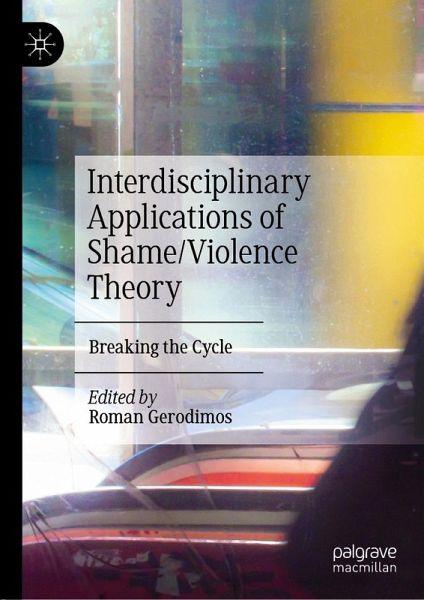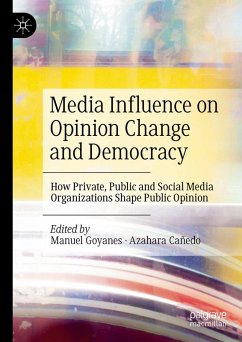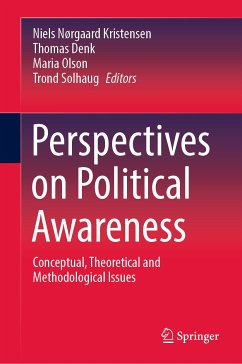
Interdisciplinary Applications of Shame/Violence Theory (eBook, PDF)
Breaking the Cycle
Redaktion: Gerodimos, Roman
Versandkostenfrei!
Sofort per Download lieferbar
104,95 €
inkl. MwSt.
Weitere Ausgaben:

PAYBACK Punkte
52 °P sammeln!
This book takes James Gilligan's theory of shame and violence as a starting point for an application of the model across disciplines (psychology, sociology, philosophy, political science, cultural studies, history, architecture and urban studies) and levels of analysis (from the individual to the global). It critically engages with shame theory, exploring the existential origins, the emotional, linguistic, cognitive and cultural manifestations and symptoms of shame-in the mind, in the body, in public space and in the civic culture-and its relationship with other emotions, such as anger, guilt ...
This book takes James Gilligan's theory of shame and violence as a starting point for an application of the model across disciplines (psychology, sociology, philosophy, political science, cultural studies, history, architecture and urban studies) and levels of analysis (from the individual to the global). It critically engages with shame theory, exploring the existential origins, the emotional, linguistic, cognitive and cultural manifestations and symptoms of shame-in the mind, in the body, in public space and in the civic culture-and its relationship with other emotions, such as anger, guilt and pride. It also examines the role of shame in communities that are at the fault lines of current affairs, identity politics and "culture wars", such as Brexit, trans rights, and racial equality. The book contributes to the literature on political psychology and psychosocial studies by facilitating an innovative application of the concept of shame: blending theory and practice, focusing on gender as a key lever of the mechanism of shame, and exploring the mechanics of shame and shame awareness, so as to seek and propose a range of guiding principles, practical models and possible solutions for the future.
Dieser Download kann aus rechtlichen Gründen nur mit Rechnungsadresse in A, B, BG, CY, CZ, D, DK, EW, E, FIN, F, GR, HR, H, IRL, I, LT, L, LR, M, NL, PL, P, R, S, SLO, SK ausgeliefert werden.












